“The more we quarrel and criticize and misunderstand each other, the bigger the ocean gets, and the smaller the boat.”
|
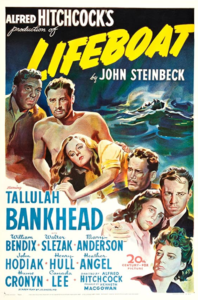
Synopsis:
A disparate group of survivors from a torpedoed ship — including a journalist (Tallulah Bankhead), a tycoon (Henry Hull), a seaman (John Hodiak), a wounded stoker (William Bendix), a radio operator (Hume Cronyn), a nurse (Mary Anderson), a shell-shocked mother (Heather Angel), and a steward (Canada Lee) — allow a German U-Boat survivor (Walter Slezak) on board their lifeboat, but are never quite sure how much they can trust him.
|
|
Genres, Themes, Actors, and Directors:
- At Sea
- Hitchcock Films
- Hume Cronyn Films
- Ensemble Cast
- Mistaken or Hidden Identities
- Survival
- Tallulah Bankhead Films
- William Bendix Films
- World War Two
Response to Peary’s Review:
Peary refers to this cleverly conceived “character-propaganda piece” as “flawed but enjoyable”, arguing that director Hitchcock “does wonders with his challenging set, never moving his camera outside the lifeboat”. Indeed, it’s remarkable to realize that, as noted by critic Dave Kehr, “the drama is developed without recourse to flashbacks or cutaways” — yet our attention never flags. While John Steinbeck and Jo Swerling’s script is perhaps a bit “obvious and too didactic”, the performances by the motley cast members are strong enough to carry the film and hold our interest throughout. Especially memorable is Tallulah Bankhead, giving “bite to her every line” in a rare film appearance as a socialite reporter who is gradually forced to give up all physical remnants of her prestige; Hitchcock apparently cast her because he wanted “the most oblique, incongruous person imaginable in such a situation”. Equally impressive is Walter Slezak as “the German”, a “great villain whose cunning is revealed a little at a time” — he’s a genuinely menacing presence on board the tiny ship.
Redeeming Qualities and Moments:
- Tallulah Bankhead as Connie Porter
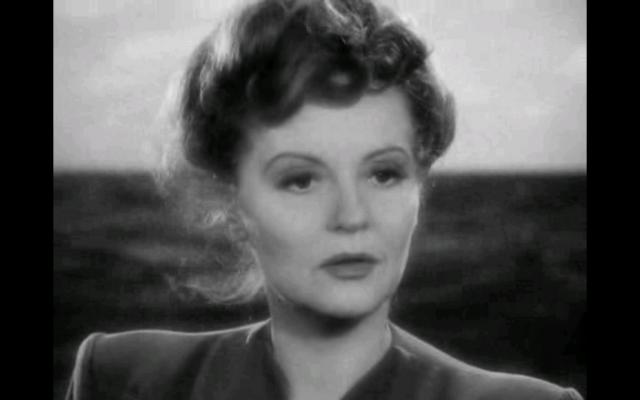
- Walter Slezak as Willy
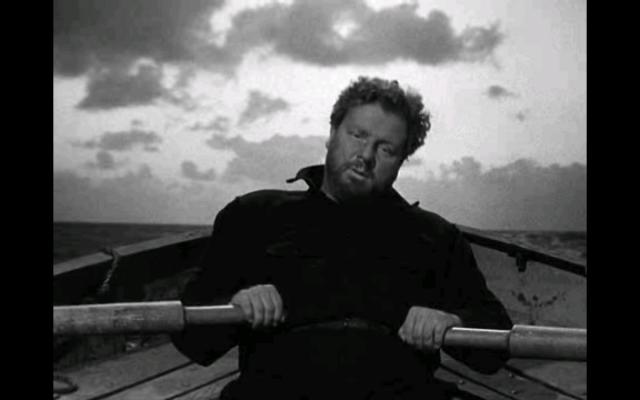
- Fine direction in a decidedly cramped shooting location
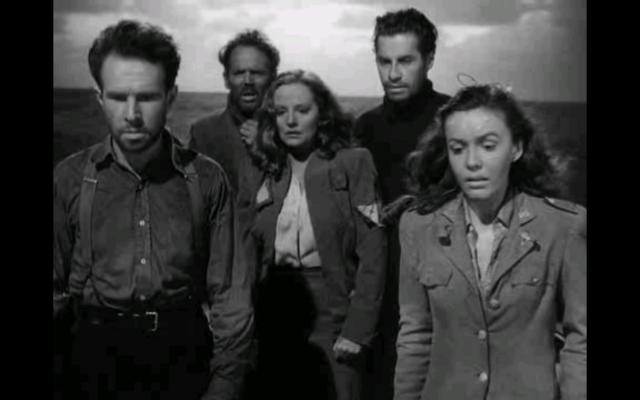
- A compelling tale of survival
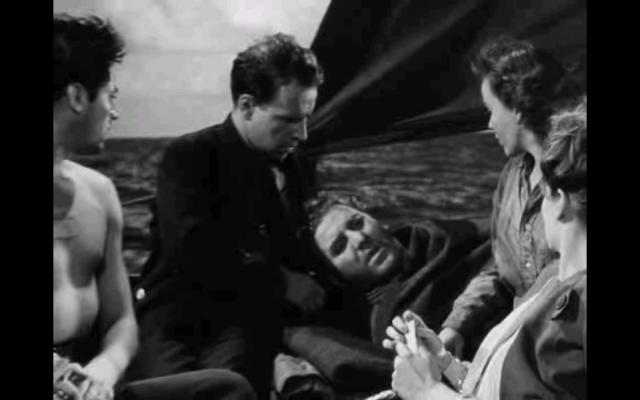
Must See?
Yes, as a fine Hitchcock drama.
Categories
Links:
|





One thought on “Lifeboat (1944)”
A definite must – and one well worth revisiting from time to time.
Til now, it had been a while since I’d seen ‘Lifeboat’. It’s one of Hitchcock’s films which, to me, seems to not get enough credit for being a terrific film experience. Critics can say all they like about it being a “propaganda piece” or, as Peary says, “flawed”, “obvious and too didactic” (which I don’t find I agree with). Such criticism seems to derail the fact that it’s a damn fine piece of filmmaking.
As I may have said before, while I admire a number of Hitchcock films immensely and go back to some of them on occasion, a main problem I have with much of his work is the presence of a static, studied quality – which may stem from Hitchcock’s own admission that, once a film was constructed in his head, the experience of actually making the film was less satisfying for him. To me that translates as a resulting lack of spontaneity in the finished product. In large part, of number of his films seem to suffer from that. Which is probably why I’m hesitant to return to so many of his films.
However, to me, ‘Lifeboat’ is as fresh as when it was made. It takes a mix of personality types, puts them in a ‘pressure cooker’, and we simply watch the swift, non-stop tension of how it all plays out. The film seems to be over before you know it – always a plus.
It seems unclear who actually is responsible for writing which parts of the finished screenplay: Steinbeck’s voice does seem to be in there, Swerling gets sole credit for the actual script, and Ben Hecht allegedly supplied uncredited work. But it’s a rich text and it plays like a bat out of hell.
Hitch works here with a DP I’d never heard of (Glen MacWilliams), yet the masterful hand of (uncredited) Arthur Miller appears to be very much in evidence. Also of note is Dorothy Spencer’s sharp editing.
All elements here – including the fine work across-the-board by the remarkable cast – make for an experience much more riveting than one might ever expect from a film set on a small boat.
Slezak does stand out for his subtle, sinister turn; he’s very impressive. However, it’s Bankhead who rules here in one of her all-too-rare screen performances. If only she had made more films – esp. at this point in her career! (The following year saw the release of perhaps her best work: as Catherine the Great in ‘A Royal Scandal’ – a very unsung comic gem directed by Lubitsch and Preminger. After that, Bankhead made only one other film, 20 years later…the ‘infamous’ ‘Die! Die! My Darling!’)